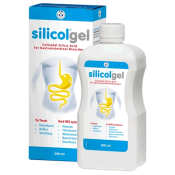Recovering from food poisoning
Food poisoning occurs when we eat contaminated food with harmful bacteria – though sometimes viruses and parasites can be the cause (known as a stomach bug). Food can be at higher risk of becoming contaminated if is not stored properly, not cooked properly or left at room temperature for too long.
While food poisoning is a horrible experience, it is usually not life-threatening, and in most cases, unfortunately, you just have to let it run its course!
There are, however, some things you can do to help speed up your recovery from food poisoning.
For advice on how to avoid food poisoning, click here.
Food poisoning symptoms
In most cases, food poisoning symptoms as a result of a foodborne illness are usually altered bowel movements including diarrhoea, vomiting, stomach cramps, fever, and chills.
Please note, that any more persistent or severe symptoms of food poisoning such as bloody diarrhea should always be investigated by a doctor straight away, especially in young children or older adults who may be more vulnerable.
My tips for a speedier recovery from food poisoning
If not treated properly, food poisoning and its after-effects can drag out for several days and may result in secondary conditions like severe dehydration. To ensure a speedy recovery from food poisoning, follow my top tips:
1 - Replace fluids and lost electrolytes
The first, and perhaps most important tip with an upset stomach is to keep hydrated! We want to try and retain fluids and prevent dehydration, or at least any further dehydration (it can be hard to avoid completely if you are experiencing symptoms of vomiting or diarrhea since you lose lots of fluids with these).
While experiencing the worst of your symptoms, take frequent small sips of clear liquids such as plain water or even ice chips or ice cubes, depending on what is most palatable to you. 
After a few hours, symptoms such as vomiting ease off, and you can work up to including an oral rehydration solution. Make sure to have some fruit juice, naturally sourced sports drinks, coconut water, or our Balance Mineral Drink to help replenish electrolytes that you have lost, in addition to plain water.
For anyone with kidney disease, always check with your doctor before purposely introducing extra electrolytes into your regime.
You can also buy oral rehydration solutions over the counter from your local pharmacy which are aimed to help avoid dehydration.
Harsher treatments such as anti-diarrhoea meds may not recommended in the case of food poisoning as it may mean the bad bacteria are trapped in your system for longer. But always ask your doctor if you are in any doubt.
2 - Bland foods are the best foods (at first)
What to eat after food poisoning? When it's time to eat foods, I often start to reintroduce bland foods. Eating these are easier on the stomach, and preferably starting with small meals or snacks, is the best approach as you treat food poisoning.
Whilst perhaps not your usual diet, bananas, toast, saltine crackers, mashed potatoes or rice are good places to start as you start eating foods again after food poisoning. Despite some of these options being classed as low fiber foods, they could help your stomach settle.
The BRAT diet is also popular. BRAT stands for bananas, rice, apple products such as apple pulp or sauce, and toast. Again, eating the BRAT diet is perhaps not your regular diet, but these BRAT diet foods can be gentler on your stomach during recovery from symptoms such as vomiting.
Homemade soup such as a vegetable broth, is another nice option! See, the natural sodium, magnesium, and potassium from the vegetables will help you in your bid to replace lost electrolytes. Vegetables are also high fiber foods that will help to keep your digestive system moving, even if you are dehydrated, whilst also being kind to your blood sugar.
Please note, don't force yourself to eat too quickly after food poisoning or a stomach bug as this may make things worse, but once you are ready, these foods can be your go-tos.
3 - Add in some ginger
Ginger can be a welcome addition to liquids too as it can be antispasmodic. Add slices into cold water or grate it into warm water to make a homemade tea.
Aim to drink plenty throughout each day, rather than gulping lots of liquids at once.
4 - Foods to limit
Whilst I'm not one to say to avoid foods too often. Limiting fatty foods (or fried foods), dairy products, spicy foods, and caffeine could help to limit any further irritation on the stomach. You might then assume non caffeinated sodas are okay, but actually, they can contain lots of sugar and artificial sweeteners which often aren't too helpful for your digestion.
Low-fat foods may be tempting to eat (now or generally), but also check the ingredients list for nasties here too.
5 - Be mindful of over-exertion
If you are on holiday or enjoying the British summer when you experience symptoms of food poisoning, try to keep out of the sun for a day or two. Exposing yourself to sun and heat may make you more dehydrated, and overwork your body – it's already fighting an infection, and the last thing you want to do is force it to focus on keeping you cool as well! Plus, at the very least have some ice chips nearby.
Also, depending where you are in the world you might want to be on the lookout for spicy foods trying to sneak back into your diet too soon. These are usually not one of the first options to eat if you can help it unless you are very tolerant of spice.
The same applies to exercise or even just moving too much - your body should be putting its energy into recovery rather than fuelling any overzealous activities.
6 - Get plenty of rest
In line with my previous point, this is important to help your body heal itself quickly and help your symptoms improve in a more timely manner.
Don't always feel the need to struggle and go to work, do the housework, or go out shopping. Normally these activities can wait for a day or two or perhaps you could ask for some help. Instead, take the opportunity to lie down, watch some TV, read a book, and relax.
7 - Consider a herbal remedy
Silicol Gel is a nice remedy you might want to include from the get-go as you can add it to your water. It helps to add a protective layer to the digestive tract and adsorbs potential pathogens.
Then, whilst not a herbal remedy, fermented foods (especially vegetable products rather than dairy products) contain healthy bacteria and can be another good option to eat after food poisoning.
How to stop it spreading
When you have food poisoning, you want to try and control the spread, especially young children or the elderly. Keep up hygiene practices such as washing hands thoroughly and practicing disease control methods in the kitchen. You may have to stay clear from nurseries, schools or workplaces for up to 48 hours.
When to seek medical help
If you experience severe symptoms of food poisoning, your food poisoning symptoms such as vomiting or diarrhea last more than a few days, or you experience any other symptoms of concern, you should consult your GP.
They can consider your medical history and may want to carry out further investigative steps such as a physical exam or blood tests, or you may need help rehydrating and retaining fluids.
People who are particularly vulnerable (for example the elderly and the very young, as well as people with underlying health conditions) should seek medical advice.
Originally published on 08/09/16, updated on 07/03/24








